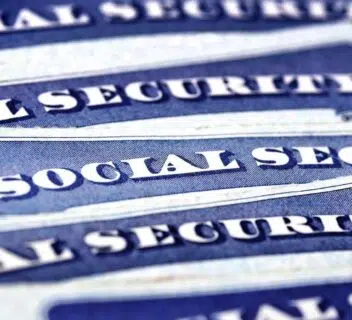Assessing Your Chances of Winning a Personal Injury Lawsuit
Wondering about your chances of winning a personal injury lawsuit? This article breaks down the key factors that influence legal outcomes, helping you assess your likelihood of success and make informed decisions.
Key Takeaways
- The success of a personal injury lawsuit largely depends on the strength of evidence, the quality of legal representation, and the jurisdiction of the case.
- Most personal injury cases settle out of court, as this approach offers quicker compensation and avoids the unpredictability of trials.
- Timely filing of personal injury claims is critical, as missing statutory deadlines can result in the loss of the right to pursue a claim.
Key Factors Influencing Personal Injury Lawsuit Success
Several key factors determine the outcome of personal injury lawsuits. The strength of your evidence, the quality of your legal representation, and the jurisdiction in which your case is filed play pivotal roles in influencing the result of your personal injury case. Each of these elements can significantly impact your ability to secure a successful outcome and fair compensation for your injuries.
Understanding these factors helps you better prepare for the challenges ahead and improve your chances of winning a personal injury case.
Quality of Evidence
Gathering strong evidence is one of the most crucial steps in winning a personal injury lawsuit. The types of evidence that can substantiate your injury claims include photographs of the accident scene, medical records, and witness statements. Clear evidence of liability significantly increases the chances of obtaining compensation. Additionally, demonstrating damages further enhances this likelihood. Therefore, collect and preserve relevant documents immediately after the accident.
The credibility and quality of the evidence presented can significantly influence the outcome of your case. Eyewitness statements, for instance, can enhance the credibility of your claims and increase the chances of stronger evidence leading to a favorable judgment.
Timely documentation of your severe injuries and the accident scene is vital, as evidence can degrade over time, potentially weakening your case. Having strong and credible evidence of more severe injuries is fundamental to achieving a successful outcome in your personal injury claim.
Legal Representation
Experienced legal representation is crucial for navigating the complex legal systems involved in a personal injury case. Personal injury attorneys evaluate claims, negotiate with insurers, and represent clients in court, ensuring their rights are protected throughout the process. They can significantly enhance your chances of securing favorable settlements in personal injury law.
Effective legal representation boosts the likelihood of winning and leads to better settlements and higher compensation. A skilled personal injury lawyer and their legal team possess the specialized knowledge and negotiation skills to maximize your compensation and improve your overall outcome, including the use of legal arguments.
Engage an experienced attorney early in the process to secure fair compensation and successfully navigate the litigation process.
Contact 1-800-THE-LAW2 today for a free consultation with a personal injury lawyer in our network.
Jurisdictional Variances
Jurisdictional variances can have a significant impact on the resolution of personal injury cases. Different jurisdictions have varying local laws and jury biases that can influence the outcome of your case.
Understanding these variances helps in effectively navigating the legal process and maximizing your chances of success.
Understanding Settlement vs. Trial
When pursuing a personal injury lawsuit, understanding the differences between settling out of court and going to trial is crucial. Settlements typically result in faster compensation and help avoid the unpredictability associated with trials, resolving disputes more efficiently.
However, each option comes with its own set of risks and rewards. While settlements offer a quicker resolution, going to trial may lead to a higher compensation award but carries significant risks and uncertainties. Weighing the pros and cons of each approach allows you to make an informed decision that best suits your situation.
Why Most Cases Settle Out of Court
Personal injury lawsuits rarely go to trial. Most cases settle before reaching the courtroom to avoid trial unpredictability and resolve disputes more efficiently. Settling out of court is generally preferable due to the uncertainties and costs of trial litigation, offering efficiency and cost-effectiveness.
Estimates suggest that up to 95 percent of personal injury cases settle through settlement. Settling allows the claimant to avoid the lengthy, costly process of a trial, providing faster compensation and reducing the stress of prolonged legal battles.
Risks and Rewards of Going to Trial
While settling out of court offers many benefits, going to trial can potentially result in higher compensation. However, trials are stressful, can significantly disrupt your life, and are a lengthy trial process and uncertain, making them a risky endeavor.
Despite these challenges, some most personal injury cases may warrant going to personal injury trials, especially if the potential compensation outweighs the risks. An experienced personal injury attorney can help you evaluate the chances of winning and determine whether pursuing a trial is in your best interest.
Carefully considering the risks and rewards helps you make an informed decision about the best course of action.
Defining a Fair Settlement in Personal Injury Claims
A fair settlement in a personal injury claim should encompass not only immediate expenses but also future medical costs and emotional distress associated with the injury. Lawyers play a crucial role in maximizing settlement outcomes by navigating factors such as the hostility of the defendant and the defendant’s willingness to settle. Knowing what constitutes a fair settlement is crucial for securing fair compensation.
When evaluating a settlement offer, consider the following factors:
- Whether it meets your financial needs
- The risks of going to trial
- The fault of each party, expressed as a percentage, impacts the compensation awarded. Carefully assessing these factors helps determine whether a settlement offer is fair and in your best interest.
Compensation Amount
In personal injury claims, economic damages include financial costs related to the injury, such as medical expenses and lost wages. Non-economic damages refer to compensation for intangible losses like pain and suffering. When negotiating a settlement, consider future medical expenses and potential lost income related to personal injuries.
The perceived strength of your case can significantly influence the compensation offer for a personal injury settlement. Evaluating damage claims should account for both present and potential future costs associated with the injuries. Factors such as the severity of injuries and the financial losses incurred will shape the amount you can recover in a personal injury case.
Likelihood of Winning at Trial
The probability of winning a personal injury case that goes to trial is variable, depending on a number of different factors. Factors like the quality of evidence and legal representation influence the chances of winning. Each case is unique and depends on its specific circumstances.
An experienced personal injury attorney can help you evaluate the likelihood of success and determine the best course of action for your case. Carefully considering the odds of winning and potential compensation helps in making an informed decision about whether to settle or go to trial.
The Role of Comparative Negligence in Personal Injury Cases
Comparative negligence evaluates the extent of blame each party has in a personal injury case, impacting the compensation awarded. This legal doctrine allocates fault among parties involved, affecting how much compensation a party can recover in a personal injury claim.
Understanding the role of comparative negligence helps in navigating personal injury lawsuits.
How Comparative Negligence Works
Under the doctrine of comparative negligence, if a plaintiff is found 51 percent or more at fault in a personal injury case, they will not receive any compensation. This allocation of fault affects whether a plaintiff can recover compensation if partially at fault for their injuries.
Understanding how comparative negligence works helps you better navigate your personal injury claim.
Impact on Compensation Recovery
In personal injury cases, if a plaintiff is found partially at fault, their compensation is reduced proportionally to their share of the blame. Under modified comparative negligence laws, if a plaintiff is found to be 50 percent or more at fault, they are barred from receiving any compensation.
In states like New York, if a plaintiff is found to be 52 percent at fault, they can still recover 48 percent of their total damages. Knowing these nuances is crucial for securing fair compensation.
Filing Deadlines for Personal Injury Claims
Adhering to filing deadlines is critical in personal injury lawsuits. In New York, personal injury lawsuits must be filed within three years from the date of the injury. Missing the statute of limitations typically results in dismissal and the loss of the right to pursue a claim.
Timely action is essential, as failing to act quickly on your claim can lead to lost evidence and diminished chances of a successful outcome. Understanding and adhering to filing deadlines help protect your rights and enhance your chances of winning a lawsuit.
State-Specific Statutes of Limitations
Statutes of limitations vary significantly by state and type of claim. For example:
- New York has a three-year statute of limitations for personal injury claims.
- Kentucky and Louisiana have a one-year statute of limitations for personal injury claims.
- Claims against government entities in New York must be filed within one year and 90 days.
- Medical malpractice cases in New York have a limitation of two years and six months.
Knowing these state-specific deadlines is crucial for pursuing compensation and securing compensation for fair outcomes, as they can have future implications.
How Contingency Fee Arrangements Work
Most personal injury attorneys work on a contingency fee basis, making settlements financially advantageous for clients, as they pay attorneys only if they win.
This arrangement allows clients to focus on recovery without worrying about upfront legal costs.
Benefits of Contingency Fees
Contingency fee arrangements make legal services more accessible to those without sufficient funds upfront. Attorneys are incentivized to achieve the best outcomes for their clients since their payment depends on winning the case.
This arrangement allows clients to hire attorneys without upfront costs, ensuring focused and dedicated legal representation from a law firm, and securing fair compensation without the burden of immediate financial outlay.
Potential Costs
While contingency fee arrangements eliminate upfront legal costs, they come with potential costs:
- Personal injury attorneys typically take a substantial percentage of the awarded damages.
- This percentage ranges from 33% to 40%.
- This significantly reduces the client’s net compensation.
Additionally, other expenses like expert witness fees, deposition costs, and court filing fees may be deducted from the settlement, further impacting the final amount received.
Enhancing Your Chances of Winning a Personal Injury Lawsuit
Improving your chances of winning a personal injury lawsuit involves:
- Acting promptly after a car accident to protect your rights and gather necessary evidence.
- Engaging an experienced attorney early to greatly enhance your chances of success.
- Receiving guidance from a lawyer on accident conditions and the necessary steps for your claim.
- Getting help from your lawyer to construct a persuasive argument regarding car accidents.
Maintaining honesty throughout the process is crucial, as it positively affects your credibility and outcome. Expert witnesses can also clarify complex subjects and help convince the jury.
Following these steps and avoiding common mistakes significantly enhances your chances of securing a favorable outcome and achieving favorable outcomes.
Immediate Medical Attention
Seeking immediate medical attention is crucial for both your recovery and your personal injury case. After an injury, collect evidence and seek medical attention. Medical treatment aids in recovery and creates a documented record essential for your case.
Following a doctor’s treatment plan enhances the credibility of your injury claims and significantly influences the outcome of your lawsuit.
Detailed Record Keeping
Staying organized ensures the preservation and effective presentation of documents and evidence. Contact a personal injury lawyer after an accident for guidance. Organizing all communications helps demonstrate the ongoing impact of your situation.
Keeping detailed medical records, relevant documents, and witness statements significantly strengthens your case and improves your chances of securing fair compensation.
Avoiding Common Mistakes
Avoidable mistakes often lead to losing personal injury lawsuits. Delaying medical consultation can negatively impact your case and recovery. Taking proactive measures, such as seeking medical attention and securing legal representation, helps avoid these pitfalls.
Insurance companies often use tactics to minimize payouts, making it important to work with an insurance company that can navigate the claims process and protect your interests, especially when dealing with insurance adjusters.
Summary
In conclusion, navigating a personal injury lawsuit requires a comprehensive understanding of several key factors, including the quality of evidence, the role of legal representation, and the impact of jurisdictional variances. Understanding the differences between settling and going to trial, the role of comparative negligence, and the importance of adhering to filing deadlines is crucial for securing fair compensation. By taking proactive steps, such as seeking immediate medical attention, maintaining detailed records, and avoiding common mistakes, you can significantly enhance your chances of winning a personal injury lawsuit. Remember, an experienced personal injury attorney can provide essential guidance and support throughout the process, helping you achieve a favorable outcome.
Contact 1-800-THE-LAW2 today for a free consultation with a personal injury lawyer in our network.
Frequently Asked Questions
To win a personal injury lawsuit, it is essential to provide strong evidence such as photographs of the accident scene, medical records, and witness statements, as these elements substantiate your claims. This comprehensive documentation significantly enhances your chances of a favorable outcome.
Most personal injury cases settle out of court to minimize the unpredictability, stress, and expenses associated with trial proceedings. Settlements provide a faster and more efficient resolution for both parties involved.
Comparative negligence reduces a plaintiff’s compensation based on their percentage of fault in an incident. Therefore, if a plaintiff is deemed partially responsible, their awarded damages will be decreased accordingly.
Hiring a personal injury attorney on a contingency fee basis eliminates upfront costs, as attorneys are only compensated if they secure a victory for the client. This arrangement aligns the attorney’s interests with those of the client, motivating them to achieve the best possible outcome.
Immediately seek medical attention, gather evidence, and contact a personal injury lawyer; these actions are crucial for enhancing your chances of winning a personal injury lawsuit.




